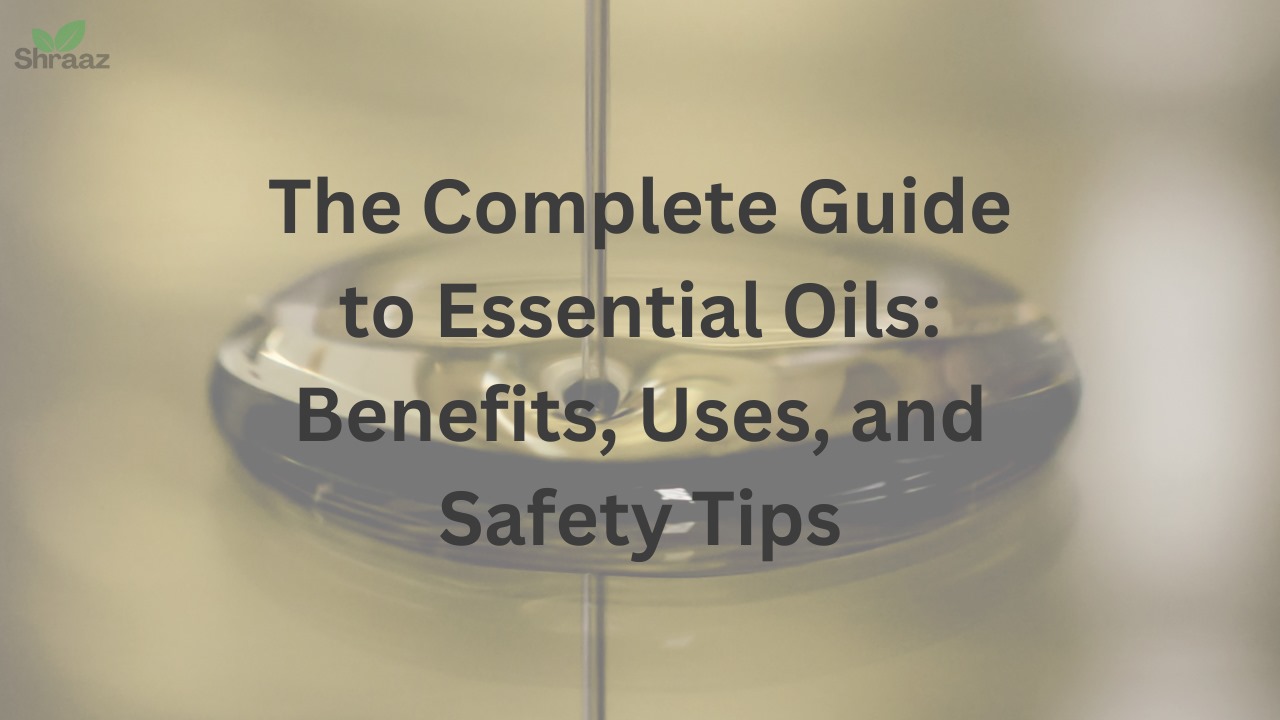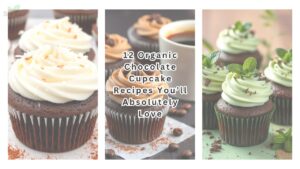Introduction
Essential oils are concentrated extracts derived from various parts of plants, including flowers, leaves, bark, and roots. These oils capture the plant’s scent and beneficial properties, which can be used for physical, emotional, and mental well-being. The essential oils industry has grown rapidly, driven by the increasing demand for natural remedies and holistic approaches to health. In fact, according to the Global Aromatherapy Market report, the essential oil market was valued at $7.03 billion in 2020 and is projected to reach $14.1 billion by 2028.
From historical uses in ancient cultures to modern-day applications, essential oils have been valued for their medicinal and therapeutic benefits. This guide provides an in-depth look at the different types of essential oils, their health benefits, safe usage, DIY recipes, and tips for purchasing high-quality products.
For a broader discussion of the overall Natural oils beyond just essential oils, check out our Complete Beginner’s Guide to Using Natural Oils.
Section 1: Types of Essential Oils
Essential oils come from different plant sources, each with its unique properties and uses. Here’s an overview of the most popular essential oils and their characteristics.
Popular Essential Oils and Their Characteristics
| Essential Oil | Main Benefits | Primary Uses |
| Lavender | Calming, anti-inflammatory, pain relief | Aromatherapy, sleep aid, skin healing |
| Tea Tree | Antimicrobial, anti-fungal | Acne treatment, skin infections, disinfectant |
| Peppermint | Digestive support, headache relief | Aromatherapy, oral care, topical muscle pain relief |
| Eucalyptus | Respiratory relief, anti-inflammatory | Diffusers, rubs for respiratory congestion |
| Lemon | Mood enhancer, cleansing | Cleaning products, aromatherapy, skin brightening |
| Frankincense | Anti-aging, stress relief | Skincare, meditation, aromatherapy |
Categorization by Source
Essential oils can also be categorized based on the part of the plant from which they are derived:
- Flower-Based Oils: Derived from flowers like roses, jasmine, and chamomile. These oils are often used in skincare and for emotional balance.
- Citrus-Based Oils: Extracted from citrus fruits such as lemons, oranges, and bergamot. These oils are known for their refreshing and uplifting properties.
- Herb-Based Oils: Made from herbs like peppermint, basil, and thyme. These oils are often used for digestive and respiratory support.
- Wood and Resin-Based Oils: Extracted from trees and resins like sandalwood, cedarwood, and frankincense. They are popular in meditation and skincare for their grounding and anti-aging properties.
Unique Oils and Blends
Beyond single oils, blends are popular for targeting specific needs. Blends like Thieves Oil, a mixture of clove, lemon, cinnamon, eucalyptus, and rosemary, are highly regarded for immune-boosting and antibacterial properties.
Section 2: Health Benefits of Essential Oils
The health benefits of essential oils span physical, emotional, and mental well-being. Many essential oils are scientifically studied and used for their therapeutic properties in traditional and alternative medicine.
Physical Health
Several essential oils offer physical health benefits, often acting as natural alternatives to synthetic medications:
- Anti-inflammatory Effects: Oils like lavender and chamomile have been shown to reduce inflammation and pain. Lavender oil, for example, can relieve pain from burns, while chamomile is used to reduce swelling and skin irritation.
- Studies: A 2015 study published in the Journal of Alternative and Complementary Medicine found that aromatherapy massage with lavender oil significantly reduced knee pain in patients with osteoarthritis.
- Respiratory Relief: Eucalyptus and peppermint oils are widely used to alleviate respiratory symptoms. Eucalyptus oil has expectorant properties that help clear mucus, making it ideal for treating conditions like asthma, bronchitis, and colds.
- Digestive Support: Peppermint oil is well-known for easing digestive issues such as bloating, gas, and irritable bowel syndrome (IBS). It has a relaxing effect on the muscles of the gastrointestinal tract.
- Antimicrobial and Antifungal Properties: Tea tree oil, with its antimicrobial and antifungal properties, is commonly used to treat skin infections, fungal conditions like athlete’s foot, and to disinfect wounds.
Mental and Emotional Health
Essential oils are commonly used in aromatherapy to support mental health:
- Stress and Anxiety Reduction: Lavender, frankincense, and ylang-ylang oils are commonly used to reduce stress and anxiety. Lavender oil, in particular, has a calming effect, which can help in reducing symptoms of depression and anxiety.
- Scientific Backing: A 2013 clinical trial demonstrated that inhaling lavender oil reduced anxiety in patients undergoing coronary artery bypass surgery.
- Improving Sleep: Chamomile and lavender oils are well-known for improving sleep quality. They promote relaxation and reduce insomnia by lowering the body’s cortisol levels, the stress hormone.
- Mood Enhancement: Citrus oils like lemon, bergamot, and orange can boost mood and energy levels. These oils are often used to counteract symptoms of depression or general fatigue.
Skincare and Beauty
Essential oils have also made their mark in the beauty and skincare industry:
- Acne Treatment: Tea tree oil is a popular choice for treating acne due to its antimicrobial properties. Studies show it can reduce acne severity without causing the irritation that some over-the-counter acne treatments do.
- Anti-aging: Frankincense oil is used to reduce wrinkles and fine lines. It promotes cellular regeneration, making it an ideal anti-aging ingredient in skincare routines.
- Skin Healing: Lavender oil is effective in healing minor cuts, burns, and scars. Its anti-inflammatory and antibacterial properties aid in skin repair.
Other Applications
In addition to health benefits, essential oils can be used for various other purposes:
- Insect Repellents: Oils like citronella, eucalyptus, and tea tree oil can be effective natural insect repellents.
- Oral Health: Peppermint and clove oils are often used in natural mouthwashes to freshen breath and relieve tooth pain. Clove oil, in particular, has anesthetic properties that can numb dental pain.
Section 3: How to Use Essential Oils Safely
While essential oils offer numerous benefits, they must be used with caution to avoid potential side effects.
Dilution Guidelines
Essential oils are highly concentrated and can cause skin irritation or allergic reactions if applied directly. Diluting them with carrier oils such as coconut oil, jojoba oil, or almond oil is recommended:
- General Dilution Ratio: A common dilution ratio is 2-3 drops of essential oil per teaspoon (5ml) of carrier oil for topical use.
Methods of Application
There are several ways to use essential oils:
- Aromatherapy/Diffusers: Adding a few drops of essential oil to a diffuser allows the scent to fill a room. This is one of the most popular ways to experience the benefits of oils like lavender, eucalyptus, and citrus oils.
- Topical Application: Essential oils can be applied directly to the skin (after dilution) for localized benefits, such as pain relief or skin care. Some common application points include the temples, wrists, and soles of the feet.
- Ingestion (With Caution): Some essential oils, such as peppermint and lemon, can be ingested when properly diluted. However, ingestion should only be done under the guidance of a healthcare professional, as essential oils are potent and can be harmful if misused.
Precautions and Potential Risks
Essential oils are powerful substances and should be used carefully:
- Allergic Reactions: Perform a patch test before applying a new essential oil to your skin.
- Pregnancy and Children: Certain oils, like peppermint and rosemary, should be avoided during pregnancy or for use on small children.
- Pets: Some essential oils, such as tea tree oil and eucalyptus, are toxic to pets, especially cats. Always use oils in a well-ventilated area.
Section 4: DIY Recipes and Blends
Essential oils can be used in various DIY projects, from personal care products to household cleaning solutions.
Aromatherapy Blends
- Calming Blend: Combine lavender, chamomile, and bergamot oils in a diffuser to promote relaxation and reduce stress.
- Energizing Blend: Peppermint, lemon, and eucalyptus oils create an invigorating and energizing atmosphere when diffused.
Beauty and Skincare
- Anti-Aging Facial Serum:
- 2 drops of frankincense oil
- 2 drops of lavender oil
- 1 tablespoon of jojoba oil
- Apply to the face before bed to promote skin regeneration.
- DIY Body Scrub:
- 1 cup of sugar
- ½ cup of coconut oil
- 10 drops of lemon essential oil
- Use this scrub to exfoliate the skin and brighten the complexion.
Household Uses
- Natural Cleaning Spray:
- 1 cup of water
- 1 cup of vinegar
- 10 drops of tea tree oil
- 10 drops of lemon oil
- This makes an effective and natural cleaner for countertops and surfaces.
- Room Freshening Spray:
- 1 cup of distilled water
- 10 drops of lavender oil
- 5 drops of orange oil
- Use it as a natural room spray to freshen up any space and create a calming atmosphere.
Section 5: How to Choose and Buy Essential Oils
Choosing the right essential oils can be overwhelming due to the vast array of products available. Here are some key factors to consider when purchasing essential oils to ensure you select high-quality, effective oils.
Quality Indicators
When evaluating essential oils, look for the following quality indicators:
- 100% Pure and Therapeutic Grade: Ensure the label states that the oil is 100% pure. Some brands may dilute their oils or add synthetic fragrances, which can diminish their effectiveness.
- Proper Labeling: Check for scientific names (Latin names) and the part of the plant used (e.g., Lavandula angustifolia for lavender). High-quality brands provide detailed labeling that helps consumers understand the product.
- Organic Certification: Whenever possible, choose organic essential oils, which are derived from plants grown without synthetic pesticides or herbicides.
- Third-Party Testing: Reputable brands may provide results from third-party testing to ensure purity and potency. This transparency can help you trust the quality of the product.
Price vs. Quality
The price of essential oils can vary significantly, often reflecting the extraction method, sourcing, and overall quality:
- Cost of Extraction: Some oils, like rose or sandalwood, are expensive due to the labor-intensive extraction processes and the volume of plant material required. For example, it takes approximately 60,000 rose petals to produce just one ounce of rose oil.
- Synthetic vs. Natural: Synthetic fragrances are cheaper to produce and may be marketed as essential oils, but they do not offer the same therapeutic benefits. Always compare the price with the quality indicators to avoid purchasing inferior products.
Storage Tips
Proper storage is crucial for maintaining the potency and effectiveness of essential oils:
- Dark Glass Bottles: Essential oils should be stored in dark glass bottles to protect them from light, which can degrade their quality over time.
- Cool, Dry Place: Keep essential oils in a cool, dry location away from direct sunlight and heat sources. Avoid bathrooms or areas with high humidity, as moisture can alter the chemical composition of the oils.
- Tightly Sealed: Always ensure the bottles are tightly sealed after use to prevent evaporation and contamination.
Conclusion
Essential oils are a versatile and valuable addition to natural health and wellness routines. From their diverse applications in physical and mental health to their role in skincare and household products, understanding how to use these powerful plant extracts can enhance overall well-being. Whether you are new to essential oils or looking to deepen your knowledge, this comprehensive guide provides the essential information you need to explore and safely incorporate essential oils into your daily life. Always remember to prioritize quality, safety, and proper usage to fully benefit from the natural goodness of essential oils.
Additional Resources
Books and References
- The Complete Book of Essential Oils and Aromatherapy by Valerie Ann Worwood
- Essential Oil Safety: A Comprehensive Guide to Essential Oil Safety by Robert Tisserand and Rodney Young
- The Aromatherapy Bible: The Definitive Guide to Using Essential Oils by Gill Farrer-Halls
Online Communities
- Facebook Groups: Join essential oil enthusiast groups for tips, recipes, and support.
- Aromatherapy Forums: Engage with online communities dedicated to the study and practice of aromatherapy.
This complete guide serves as a valuable resource for anyone looking to understand and utilize the myriad benefits of essential oils safely and effectively. With the right knowledge and precautions, essential oils can become a powerful ally in your journey toward health and wellness.
Frequently Asked Questions (FAQ)
1. What are essential oils?
Essential oils are concentrated extracts derived from the leaves, flowers, stems, roots, or other parts of plants. They capture the plant’s natural fragrance and therapeutic properties, making them useful for aromatherapy, personal care, and various health applications.
2. How are essential oils extracted?
Essential oils can be extracted using several methods, including:
- Steam Distillation: The most common method, where steam passes through plant material to vaporize the oil, which is then cooled and collected.
- Cold Pressing: Often used for citrus oils, this method involves mechanically pressing the peels to release the oil.
- Solvent Extraction: Used for delicate flowers, where a solvent extracts the oil, but the solvent is removed afterward.
3. Are essential oils safe to use?
While many essential oils are safe when used properly, they are highly concentrated substances and can cause skin irritation or allergic reactions if misused. Always dilute essential oils with a carrier oil for topical application, perform patch tests, and consult a healthcare professional if you’re pregnant, nursing, or have existing health conditions.
4. Can essential oils be ingested?
Some essential oils are safe for ingestion when properly diluted and under the guidance of a healthcare professional. However, not all oils are safe to consume, and ingestion should be approached with caution. Always choose food-grade essential oils and consult an expert before internal use.
5. What is the difference between aromatherapy and essential oils?
Aromatherapy is the practice of using essential oils for therapeutic purposes, focusing on the emotional and physical benefits of the oils through inhalation, topical application, or massage. Essential oils are the concentrated plant extracts used in aromatherapy.
6. How do I store essential oils?
Essential oils should be stored in dark glass bottles to protect them from light. Keep them in a cool, dry place away from heat sources and tightly sealed to prevent evaporation and contamination.
7. Which essential oils are safe for children and pets?
Some essential oils are generally considered safe for children and pets, such as lavender and chamomile, but many oils can be harmful. Always research specific oils and consult a healthcare provider or veterinarian before using essential oils around children or pets.
8. How can I tell if an essential oil is of high quality?
Look for essential oils that are labeled as 100% pure, therapeutic grade, and have proper botanical names. Reputable brands often provide third-party testing results to confirm their oils’ purity and quality.
9. What are some popular uses for essential oils?
Essential oils can be used for a variety of purposes, including:
- Aromatherapy: Using diffusers or inhalation for stress relief, mood enhancement, or relaxation.
- Skincare: Incorporating oils into beauty routines for acne treatment, anti-aging, or skin healing.
- Household Cleaning: Use oils like tea tree and lemon in natural cleaning solutions.
- Massage Therapy: Blending with carrier oils for therapeutic massages.
10. Can essential oils help with sleep issues?
Yes, certain essential oils like lavender, chamomile, and bergamot are known for their calming properties and can help promote relaxation and improve sleep quality. Diffusing these oils or using them in a bedtime routine can be beneficial.




